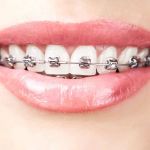What is a Dental Crown and Why Would I Need One?
- What is a Dental Crown?
- Why Would I Need a Dental Crown?
- Different Types of Dental Crowns
- The Dental Crown Procedure
- Caring for Your Dental Crown
- When to Consult Your Dentist About Dental Crowns
What is a Dental Crown?
A dental crown is a cap that covers a damaged or decayed tooth, restoring its shape, size, and strength. The primary purpose of a dental crown is to protect a weak tooth from further damage, while also improving its appearance. It can be placed over a single tooth, completely encasing it to provide reinforcement and improve its function.
Dental crowns are made from a variety of materials, including porcelain, metal, and ceramic. The choice of material depends on the location of the tooth, the patient's preferences, and the level of durability required. Crowns are custom-designed to fit each individual tooth, providing a seamless look and feel that matches your natural teeth.
Why Would I Need a Dental Crown?
You may need a dental crown for several reasons, as it serves to both protect and improve the functionality of a tooth that is either weakened, damaged, or decayed. Below are some common reasons why dental crowns are necessary:
- Severe Tooth Decay: When a tooth has extensive decay that cannot be fixed with a regular filling, a dental crown is often needed to restore its shape and strength.
- Root Canal Treatment: After a root canal, a tooth may become brittle and prone to cracking. A crown is placed over the tooth to protect it and prevent future damage.
- Broken or Cracked Teeth: A dental crown helps to hold together a broken or cracked tooth, preventing it from further splitting and causing additional issues.
- Cosmetic Improvements: Crowns can also be used for cosmetic reasons, such as covering a discolored or misshapen tooth to improve the overall appearance of your smile.
- Worn Teeth: If teeth are worn down due to grinding or aging, a crown can restore their shape and provide strength to the affected teeth.
In summary, dental crowns are a versatile solution for a variety of dental problems, and they are often used to restore the function, strength, and aesthetics of a damaged tooth.
Different Types of Dental Crowns
There are several types of dental crowns, each made from different materials and serving various purposes. The choice of crown material often depends on factors like the location of the tooth, durability requirements, and aesthetic preferences. Here are the most common types of dental crowns:
- Porcelain Crowns: Porcelain crowns are the most popular option for front teeth because they closely resemble the natural color and texture of the tooth. They offer excellent aesthetics but may not be as durable as metal crowns for back teeth.
- Metal Crowns: Metal crowns are known for their durability and strength, making them ideal for back teeth that undergo heavy chewing. They are less visible due to their metallic color but offer a long-lasting solution.
- Ceramic Crowns: Ceramic crowns are another great option for front teeth, offering a natural appearance while being durable enough for normal daily functions. They are also more resistant to wear compared to porcelain crowns.
- Resin Crowns: Resin crowns are less expensive than porcelain or metal crowns, but they are not as durable. They are generally used as a temporary solution or for teeth that don’t bear as much pressure during chewing.
- Pressed Metal Crowns: Pressed metal crowns have a metal base with a porcelain overlay, combining the strength of metal with the aesthetic appearance of porcelain. They are often used for teeth in the back of the mouth.
The material for your crown will depend on your specific needs, such as durability, appearance, and the location of the tooth that requires treatment.
The Dental Crown Procedure
The process of getting a dental crown typically involves two visits to the dentist. The first visit is focused on preparing the tooth and taking impressions, while the second visit is for placing the permanent crown. Here’s an overview of the dental crown procedure:
- Preparation of the Tooth: During the first visit, your dentist will numb the area around the tooth to ensure you are comfortable. They will then remove any decay or damage from the affected tooth and shape it to fit the crown.
- Taking Impressions: Once the tooth is prepared, your dentist will take an impression of the tooth and surrounding teeth. This mold will be sent to a lab where the custom crown is made.
- Temporary Crown: While your permanent crown is being made, your dentist will place a temporary crown over the prepared tooth to protect it.
- Placing the Permanent Crown: After the crown is ready, you will return to the dentist’s office for the second visit. The temporary crown will be removed, and the permanent crown will be placed over your tooth. The dentist will check the fit and make any adjustments as needed before cementing it in place.
The entire procedure is relatively straightforward, and most patients experience minimal discomfort. Once the crown is placed, you can enjoy a fully restored tooth.
Caring for Your Dental Crown
Proper care of your dental crown is essential to ensure its longevity and maintain your oral health. Here are some important tips for taking care of your crown:
- Maintain Good Oral Hygiene: Brush your teeth at least twice a day and floss daily to keep the area around your crown clean and free from plaque buildup.
- Avoid Hard Foods: While crowns are durable, it’s a good idea to avoid chewing on hard foods, like ice or nuts, that could potentially damage your crown.
- Visit Your Dentist Regularly: Regular check-ups will ensure that your crown is in good condition and help your dentist monitor the health of the surrounding teeth.
By following these care instructions, you can maximize the lifespan of your dental crown and keep your smile looking its best.
When to Consult Your Dentist About Dental Crowns
If you experience any discomfort, pain, or sensitivity around a crowned tooth, it’s important to consult your dentist promptly. Additionally, if your crown becomes loose, cracks, or shows signs of wear, it’s essential to have it checked as soon as possible to avoid further damage.
If you’re unsure whether a dental crown is right for you or have concerns about your oral health, don’t hesitate to reach out to your dentist for advice and a consultation.







 Eastern Dental4.0 (875 review)
Eastern Dental4.0 (875 review) Santa Margarita Pediatric Dentistry4.0 (156 review)
Santa Margarita Pediatric Dentistry4.0 (156 review) Lino Lakes Family Dentistry5.0 (110 review)
Lino Lakes Family Dentistry5.0 (110 review) Aava Dental Mission Viejo4.0 (170 review)
Aava Dental Mission Viejo4.0 (170 review) Summer Smile Dental South Gate4.0 (461 review)
Summer Smile Dental South Gate4.0 (461 review) Capital Dental Care4.0 (20 review)
Capital Dental Care4.0 (20 review) The Importance of Oral Health Education During Pregnancy for a Healthy Pregnancy
The Importance of Oral Health Education During Pregnancy for a Healthy Pregnancy Best Tips for Brushing Your Teeth Properly for Healthy Gums: Essential Techniques for Oral Health
Best Tips for Brushing Your Teeth Properly for Healthy Gums: Essential Techniques for Oral Health Why Skipping Dental Checkups Can Lead to Bigger Oral Health Problems
Why Skipping Dental Checkups Can Lead to Bigger Oral Health Problems Advantages of Porcelain Dental Restorations
Advantages of Porcelain Dental Restorations How Can Diabetes Cause Tooth and Gum Problems? Preventing and Managing Oral Health Issues
How Can Diabetes Cause Tooth and Gum Problems? Preventing and Managing Oral Health Issues Healthy Habits for Promoting Good Oral Health and Hygiene: Tips for a Healthy Smile
Healthy Habits for Promoting Good Oral Health and Hygiene: Tips for a Healthy Smile